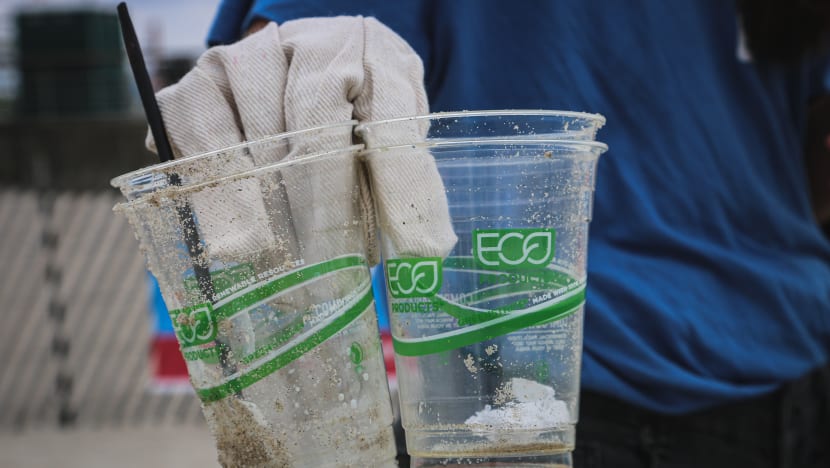About half of online products claiming to be 'eco-friendly' lack supporting evidence: CCCS-NUS study

SINGAPORE — Slightly more than half of online products made vague claims of being "eco-friendly" that lack supporting details, a study funded by Singapore's consumer watchdog has found.
The study of "greenwashing" on e-commerce websites also found that about one in seven claims about online products, or 14 per cent, used technical language that made it difficult for consumers to understand or verify the claims.
The findings were contained in a study released by the Competition and Consumer Commission of Singapore (CCCS) on Thursday (Nov 16).
Greenwashing is when a firm misleads consumers that their products or practices are more environmentally positive or have greater environmental benefits than is true.
Researchers from the Centre for Governance and Sustainability at the National University of Singapore (NUS) Business School said in the study's report that they reviewed products across 100 e-commerce websites.
In a press release, CCCS said that claims such as “environmentally friendly”, “eco-friendly”, “green” and “sustainable” were often vague and prone to overstatement compared to the actual environmental benefits of the product.
It found that 51 per cent of online products examined in the study made vague claims of being eco-friendly that lacked supporting details or elaboration.
"For example, a claim from a supplier that its product is 'environmentally friendly' on the basis that the product is made of 10 per cent recycled material may be misleading if it is marketed to give consumers the impression that the product was made of 100 per cent recycled material," CCCS added.
Examples of technical jargon used to confuse customers include labelling products made of ABS or EVA plastics as environmentally friendly, even though both are petroleum-based plastics.
In making these claims, CCCS advised suppliers to be specific and to present any supporting information accurately and clearly.
It added that suppliers should avoid making claims that would "imply or convey an overall impression that the environmental benefit of the product is more than it is".
CCCS also advised suppliers to use language that is easier for consumers to understand, and explain the meaning or implication of technical terms.
"To address these and other potential greenwashing conduct by suppliers identified in the NUS Business School study, CCCS is developing a set of guidelines to provide greater clarity to suppliers on the environmental claims that could amount to unfair practices under the Consumer Protection (Fair Trading) Act."
It also said that it will be seeking views from the public on these guidelines "in due course".
As for consumers, CCCS advised them to take steps to better understand environmental claims, allowing them to make more informed purchasing decisions. This includes:
- Being wary of broad and vague environmental claims
- Looking up features and technical terms
- Familiarising themselves with environmental certifications or labels
- Considering whether the branding or imagery used is relevant to the product, service or business
- Understanding the environmental impact of consumption
"Consumers who encounter potentially false or misleading environmental claims by suppliers can approach the Consumers Association of Singapore for assistance," CCCS said.
"Consumers may also report suppliers’ advertisements which contain potentially misleading environmental claims to the Advertising Standards Authority of Singapore so that they can be reviewed."













